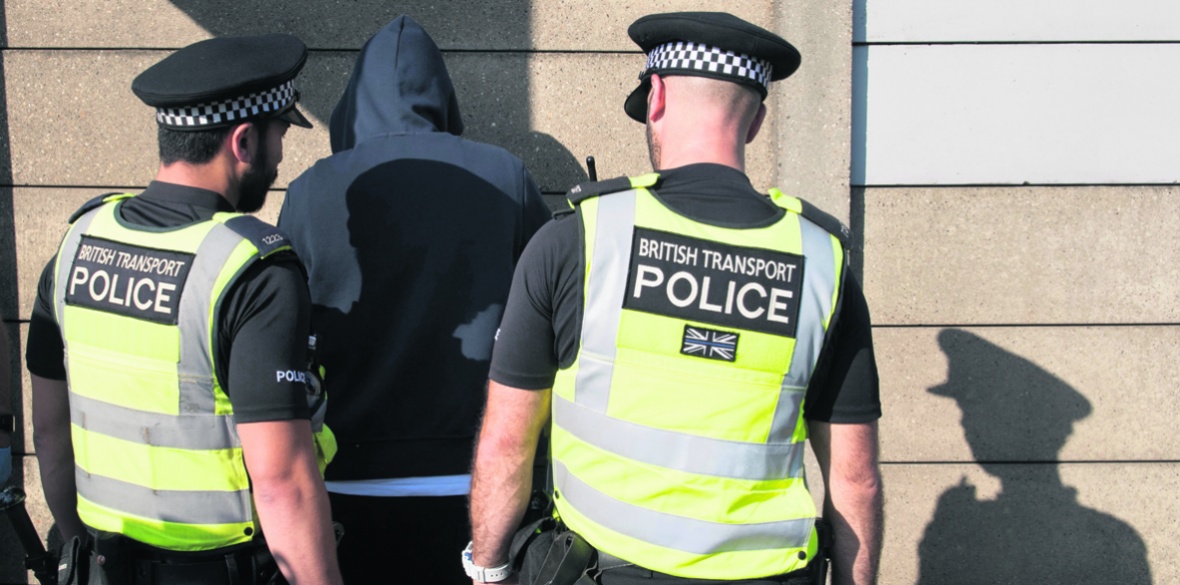This is the last article you can read this month
You can read more article this month
You can read more articles this month
Sorry your limit is up for this month
Reset on:
Please help support the Morning Star by subscribing here
NEWLY announced police powers that would enable officers to use stop-and-search more freely have been condemned as ineffectual, reactionary and divisive.
More than 8,000 police inspectors will be able to authorise the use of stop-and-search — instead of just superintendents under the old rules — as part of the government’s strategy to “come down hard” on crime, PM Boris Johnson announced today.
He also declared that there will be 10,000 more prison places, a new prison built, longer sentences, new laws regarding attacks with knives and acid, and 20,000 more police officers.
The Home Office has rolled back restrictions then home secretary Theresa May placed on police in 2014 in a new bid to make it easier to deploy stop-and-search tactics under Section 60 of the Criminal Justice and Public Order Act.
Section 60 powers give officers the right to stop and search anyone in a defined area “without needing serious grounds for suspicion if serious violence is anticipated.”
The initial period the order is in force is now 24 hours rather than 15 hours, and can be extended to 48 hours rather than the previous 39 hours.
Metropolitan Police data shows that stop and search has a negligible impact on reducing violent crime.
Labour’s shadow home secretary Diane Abbott said: “History has taught the Tories nothing. Extending Section 60 powers over the summer is a tried and tested recipe for unrest, not violence reduction.
“This draconian approach shows that Mr Johnson’s government has no real plans to invest in policing or a public health approach to tackling violent crime. They have opted to ‘appear tough’ instead of dealing with the root causes of crime.
“Evidence-based stop and search will always be a vital tool in preventing crime, but random stops have only poisoned police community relations.”
Glasgow’s successful public health approach to knife crime was cited as a model that the government should have followed.
Labour MP for Tottenham David Lammy said: “Copying the Victorians and the US Republicans with more prison places and increased stop and search won’t work. If it did we wouldn’t be in this mess.
“How about copying Glasgow’s public health approach and investing in vast new skilled employment education programmes in our prisons?”
Jonathan Hinds, who campaigns against the misuse of Section 60, cast doubt over the “evidence” used to back its expansion.
He warned of a repeat of racial tensions seen during the 2011 riots that were triggered by the police shooting of Mark Duggan in Tottenham while Mr Johnson was mayor of London. The unrest spread to other cities in England.
“The increase in stop and search is going to hit a particular demographic … what will happen is what happened in 2011,” he told BBC Radio 5 Live.
Black people are eight times more likely to be stopped and searched than white people.
Mr Hinds said Section 60 could be like a “fishing expedition” when used in areas with high black and ethnic minority populations.
He urged authorities to help tackle the causes of mental health problems and gang recruitment rather than isolating people through the use of “reactionary” powers.
The Home Office botched its press release on the expansion of the powers.
It wrote that the expansion was “supported by police chiefs across the country” but forgot to omit: “we’ll need to get NPCC [National Police Chiefs’ Council] supportive quote to be able to say this.”
The department has also admitted that it had not waited for results of seven areas that piloted the change before rolling it out across all 43 forces in England and Wales.










